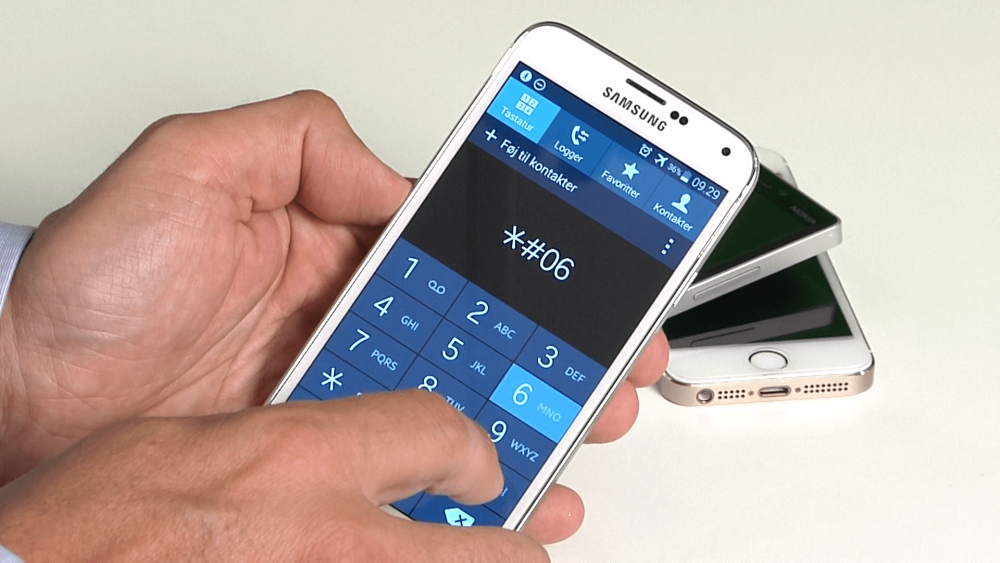
Does The Nigerian Government Intend For Its New IMEI Policy To Promote Safety Or Surveillance
Does the Nigerian government intend for its new IMEI policy to promote safety or surveillance?
Nigerians will be required to submit their IMEI numbers to a Centralized Equipment Identity Register beginning in July 2021, according to the Nigerian Communications Commission (NCC).
In May 2021, the Federal Ministry of Communications and Digital Economy released a Revised National Identity Policy for SIM Registration (PDF) requiring Nigerians to submit their IMEI numbers to the NCC-managed Centralized Equipment Identity Register (CEIR), also known as Device Management System (DMS).
The Ministry cites several reasons for its action, including reducing the counterfeit mobile phone market, discouraging mobile phone theft, enhancing national security, protecting consumer interests, increasing revenue generation for the government, lowering the rate of kidnapping, mitigating the use of stolen phones for criminal activity, and facilitating the blocking or tracing of stolen mobile phones and other smart devices
This initiative builds on the Nigerian government's previous efforts to promote digital identities.
Recall that the Nigerian government issued a statement in December 2020 requiring all Nigerians to obtain a National Identification Number (NIN). As expected, there was a rush as Nigerians throughout the country attempted to obtain their NIN prior to the deadline of December 31, 2020.
The directive sparked outrage among Nigerians due to its timing in the midst of the COVID-19 pandemic. Perhaps as a result, the deadline has been pushed back to February 2021. It has been rescheduled three times since then, with the new deadline set for June 30, 2021.
If implemented, the NCC's IMEI policy will undoubtedly have far-reaching consequences for the entire country.
What does this mean for you?
The International Mobile Equipment Identity (IMEI) is a unique identifier for mobile devices. It is typically located inside the battery compartment of most phones, but can be obtained by dialing *#06#. A phone's IMEI number can be tracked, but it can also be used for identity theft and even phone cloning.
Since the news broke, there has been a natural outpouring of outrage, with the hashtags IMEI and Isa Pantami trending on Twitter.
While the government requires Nigerians to share this information, they are not required to do so because your IMEI is included in the data transmitted to your network operator whenever you make a call, use data, or send a text.
This information is almost never used for anything other than providing the details required for your phone to function properly. However, security personnel can use it to investigate theft or to monitor terrorist activity.
Several countries, including Azerbaijan, India, Cambodia, Chile, Columbia, Ecuador, Indonesia, Iran, Pakistan, Thailand, Turkey, and Lebanon, have already implemented a version of this database.
If a phone owner has their IMEI number, they can provide it to law enforcement agencies to assist them in tracking down stolen phones.
While the reasons given by the government for this new policy appear genuine at first glance, Nigerians are bothered about the possible ways the government can exploit this data.
According to an article on The Insider, the Saudi government uses IMEI numbers to track the whereabouts of women fleeing abusive partners. The majority of reservations expressed regarding the surveillance use of this information.
It has not always been a derogatory term. According to the ITU, implementing this in the United Kingdom and Turkey resulted in a decrease in mobile phone theft while increasing the number of legally imported mobile devices in Ukraine by 95 percent, as well as revenue from mobile device imports.
Some of the questions that should be asked, according to a data privacy expert, include whether there are sufficient safeguards in the absence of a comprehensive data protection law. Additionally, is the government going to be transparent about how it uses this data and what happens if a violation occurs?
One must bear in mind that because the government requires Nigerians to link their SIM cards to the NIN, the government already has extensive data on their citizens' activities. By including IMEI data, they can now obtain real-time location data on anyone.
Given Nigeria's poor human rights record, Nigerians may be justified in being suspicious of the policy's motivations.
Courses and Certification
Data Mining Course and Certificate
Control Systems Course and Certificate
Computer Networking Course and Certificate
Telecommunications Course and Certificate
Telecom Billing Course and Certificate

